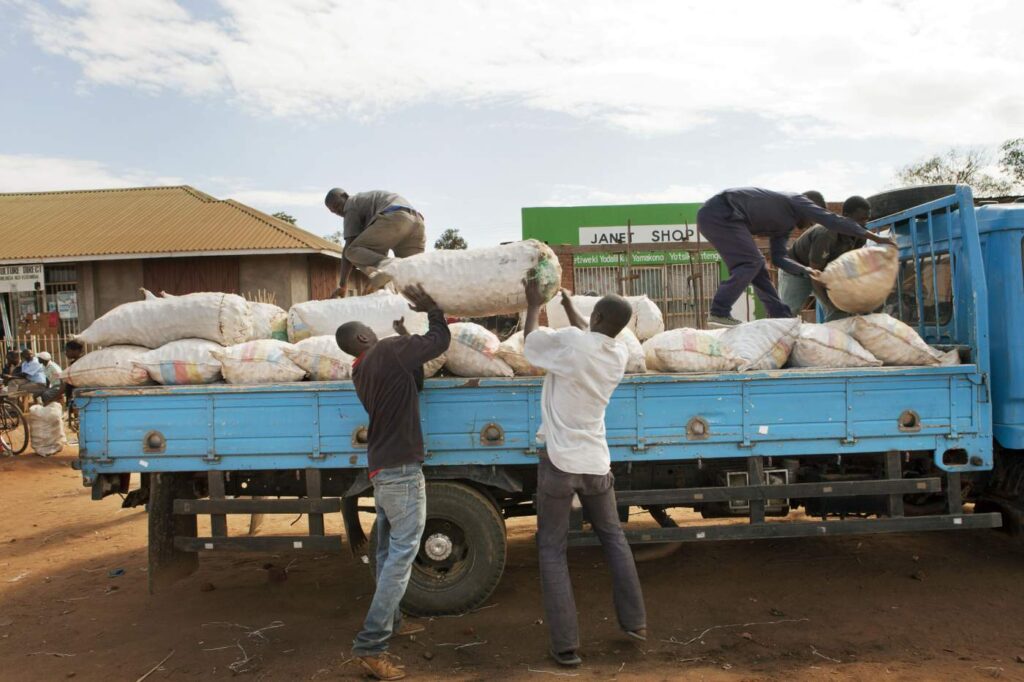The East African Community (EAC) partner states are aspiring to modernise and industrialise their economies to sustainably generate sufficient outputs to satisfy both domestic and export markets.
With the move, the EAC is also seeking to rapidly increase its per capita incomes and improve the living standards of the Community’s close to half a billion people.
Manufacturing contributes an estimated at 8.9 per cent to the Gross Domestic Product (GDP), a number which is significantly below the average target of about 25 per cent that all the five Partner States have set for themselves to achieve by 2032.
Read: East Africa maintains strong economic growth
Towards realising this growth, the industrial sector in the region has become one of the main components of national and regional economic structures with the potential to contribute significantly to the economy through job creation and stimulating the development of other sectors like agriculture and services, increasing foreign exchange earnings.
For the region to achieve this, cooperation is of utmost importance since concerted efforts will create an effective policy coordination framework towards eliminating barriers to growth and enterprise upgrading nationally and regionally.
Some countries in the EAC have taken the lead in ensuring that the SME sector survives.
Uganda has for instance in its last budget offered tax waivers and funding for the business community. The move is aimed at jumpstarting the Ugandan economy after close to three months of lockdown due to the coronavirus.
Uganda’s Finance Minister Matia Kasaija said the country’s Ush45 trillion (US$12 billion) 2020/2021 budget allocations were aimed at stimulating the economy and safeguard livelihoods, jobs, businesses and industrial recovery.
According to Mr. Kasaija, the country’s GDP by the end of the current financial year was estimated to be US$36.8 billion after a slowed economic growth of 3.1 per cent by the end of June. This average is much slower than the average growth rate of 5.4 per cent in the previous four years.
In the SME sector, a report by the Economic Policy Research Centre (EPRC) at Makerere University showed that micro, small and medium-sized enterprises were the most affected by the lockdown.
Most of these businesses have halted operations or have been forced to operate at below 50 per cent of their capacity.
To ensure that these businesses received credit, Kasaija proposed that US$25 million of the total US$12 billion be provided through Saccos and microfinance institutions so that the SMEs can have improved credit and cash flows.
As in the other EAC countries, SMEs are the backbone of Uganda’s economy controlling an estimated 85 per cent of private sector companies.
Kenya, the EAC’s investment hub had introduced the presumptive tax for small enterprises effective January 2019 requiring small businesses to pay 15 per cent of the business permit fee or license as tax. The Kenya Revenue Authority (KRA) said that business owners will pay the tax when making a payment for a business permit or a trade license.
Read also: African entity releases survival toolkit for Africa’s SMEs
However, the SMEs got a reprieve, after the taxman reviewed the presumptive tax down to three per cent of turnover after Treasury pegged the taxation to licence fees by the country’s 47 counties. This means that instead of having KRA charge blanket taxation for all businesses countrywide, entrepreneurs would instead enjoy the relatively lower levies charged by the various county governments for business permits or trade licenses.
In addition, Treasury’s move removed duplicity of charges which would have occurred had the original plan by KRA gone through.
While the government is targeting increasing its revenue collections, the taxation sounded like a death knell for the small businesses which are now struggling with the effects of the pandemic.
Kenya and Uganda could be used as a classic representation of what is happening across the EAC region with similar challenges stymieing SMEs’ growth or killing them entirely.
The East African investment hub has taxation problems while Uganda’s SMEs have to contend with inadequate financing occasioned by the unwillingness of financial institutions to provide capital for the small businesses.
However, it is not all doom and gloom since with the pandemic, governments are coming up with rescue packages which could make doing business easier.
In addition to Uganda’s allocation to SMEs, Kenya’s SME sector has a few benefits extended to help with staying afloat.
In Tanzania, SMEs have to contend with challenges like poor infrastructure, inadequate capital, uncoordinated institutional and legal support and poor market access among others.
Delayed payments, especially in public service delivery, are a big hindrance to the survival of SMEs in the country whose performance is rivalling Kenya’s.
The SME sector in Rwanda, just like in the other EAC countries remains largely the same. While the sector has the potential to lower the trade imbalance in Rwanda, the SMEs also suffer from inadequate skills and training and contract enforcement. Regionally, EAC states are seeking to diversify the manufacturing base and raising local value-added content of resource-based exports to at least 40 per cent by 2032.
EAC is also strengthening institutional frameworks and capabilities for effective support services delivery. For instance, the region is partnering with the European Union to enable small businesses in the agricultural sector access the lucrative market.
Through the Market Access Upgrade Programme (MARKUP), agribusinesses in the EAC member states are expected to benefit from greater business opportunities in both the East African and European markets
In addition, the community is strengthening Research & Development (R&D) and technology and innovation capabilities to transform the manufacturing sector while upgrading the industrial sector.
The EAC also seeks to expand trade in manufacturing by increasing intra-regional manufacturing exports and the share of manufactured exports relative to total merchandise exports to at least 60 per cent.
EAC partner countries are also moving to transform MSMEs into viable and sustainable business entities which can comfortably contribute at least 50 per cent of manufacturing GDP from the current 20 per cent base rate.











